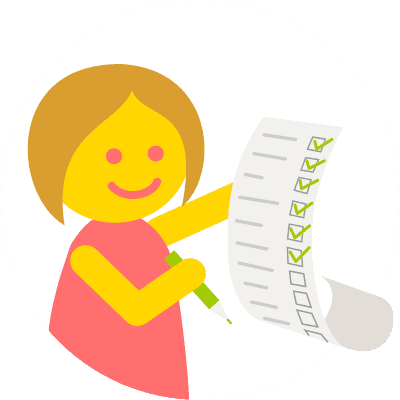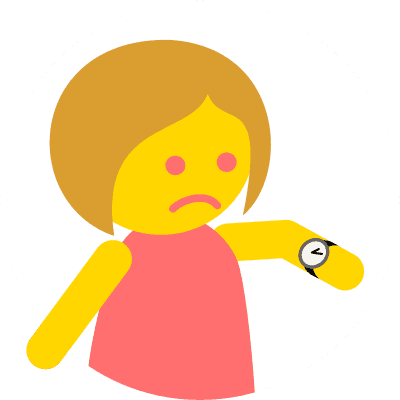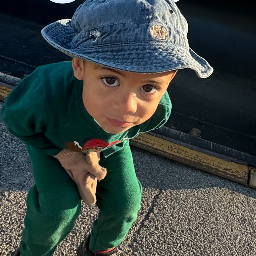Is A Babysitter A Legal Guardian? (Plus Medical Consent Form Examples)


Written & Illustrated by
Matthew James Taylor
Kidsit Founder, General Manager
As a babysitter, you have specific responsibilities for the children you're put in charge of, as well as the authority to make some decisions on behalf of their parents, but where do your obligations begin and end, exactly?
Is a babysitter a legal guardian? A babysitter is not considered a legal guardian. Babysitters have physical custody over the children they watch, but not legal custody. However, parents can fill out paperwork which specifically enables babysitters to make long-term decisions for their child.
Kidsit babysitting statistics
The average babysitter is 23 years old, and has 5 years and 6 months experience working with children. 9.07% of babysitters are also parents.
(Babysitting statistics calculated weekly from our live member data — Updated 31 Jan 2026)
In this article, you'll learn what a legal guardian is and the rights and responsibilities a legal guardian has. We'll discuss whether babysitters are considered legal guardians or not. And what steps you can take to make sure you have the legal authority to make decisions for a child in case of an emergency.
What Is A Legal Guardian?
A legal guardian is someone who has the legal authority to look out for another person's best interests and provide care for them.
The most common cases where a legal guardian is used are:
- For minors (children under 18 years old)
- For developmentally disabled adults
- For seniors who are deemed unable to make decisions for themselves, due to infirmity or old age
For babysitters, we're mostly only concerned with whether legal guardianship applies to you when you have minors in your care.
What Are The Rights and Responsibilities of a Legal Guardian?
A legal guardian is capable of making legal decisions on behalf of a child. That includes things like where they'll go to school, where they'll live, and similar important aspects of their life.
As much as legal guardians have the authority to make decisions on behalf of a child, they also bear a lot of legal responsibilities. They are expected to behave much in the same way a parent would for their child.
A legal guardian has responsibilities, including:
- Providing food for a child
- Providing shelter for a child
- Purchasing clothing for a child
- Keeping the child physically and emotionally healthy
- Keeping the child safe from potential safety hazards
Even if you aren't legally required to do some tasks, there are still duties parents will expect. Learn more in this article - Babysitting Responsibilities (23 Duties Parents May Expect From You)
Is A Babysitter A Legal Guardian of a Child?
Legally, no. In the vast majority of places, a babysitter is not considered a legal guardian. That means babysitters can't do things like sign release forms or agree to medical procedures for children they're watching.
Babysitters have what's known as physical custody of the children they watch, but not legal custody.
Legal guardians have legal custody. That means they can make life-changing, long-term decisions on a child's behalf. That includes things we discussed above, and other items like deciding on the religion a child should be involved in, or what medical care they should or shouldn't receive.
Physical custody, on the other hand, is what caregivers such as babysitters, teachers, and daycare workers do have. Physical custody means they're responsible for the day-to-day care of the child. However, they don't have the right to make long-term decisions on behalf of the child. They are only allowed to make the day to day, short-term decisions for the child.
In the eyes of the law, babysitters, and even relatives and family friends of a child, are not considered close enough to a child to make contracts on a child's behalf. That means unless you've officially received a "guardian" designation from a court, you aren't a child's legal guardian.
How Does Not Having Legal Guardianship Affect Babysitters?
Not having legal guardianship over the children you're babysitting can have some big consequences, particularly in the case of an emergency.
Say a child you're babysitting has broken their leg. You take them to the hospital. But when you get there, a doctor will ask you if you're the child's parent before they're willing to set the child's leg. Since you're not a legal guardian or parent, the doctors will not be allowed to perform any necessary medical procedures without approval from the child's parents. That could leave you in a pretty awful situation.
For more information on getting medical care for kids while babysitting, check out my article - Can a Babysitter Take a Child to the Doctor?
Can A Babysitter Get Anything Else In Place of Legal Guardianship?
Parents can give special authorization to babysitters or others to act on their behalf. These forms won't transfer legal guardianship to a babysitter, but it will give them many of the powers normally only afforded to a legal guardian.
Some forms are more specialized and specifically relate to medical care.
If you're babysitting a particular child regularly, you'll want their parents to complete a medical treatment consent form. This allows babysitters to make medical decisions on behalf of the child they're babysitting. It's filled out at the doctor's office and kept on file. It will look something like this.
However, that will only give you, as the babysitter, permission to make medical decisions with that specific doctor. That's great if you need to take a child for a doctor's appointment but won't help if you need to take them to the emergency room.
For that reason, it's better to have a more general medical treatment authorization and consent form completed. You can find an example here. However, since laws can vary from country to country, it's best to have parents check these forms over with a lawyer to be sure they'll be valid when you need them.
Parents can also complete more general babysitter consent forms. These can allow babysitters to act as a temporary custodian for a child and to do things like sign forms required to register for field trips at school or to sign up for sports or swimming lessons.
It's good also to have a form that legally authorizes you to perform first aid and medical care on children in your care. Typically these forms also state that parents will hold you harmless from any liability for injuries to their child, as long as you've exercised reasonable care.
Some babysitter consent forms even lay out the type of discipline that you're allowed to use on the child without any fear of reprisal from the parents. This way, you can be sure you're providing the kind of discipline that parents want.
Along with any kind of consent form that parents give you, make sure they also give you a sheet with useful information such as their preferred doctors, the child's medical history, medical insurance carrier information, and any special care instructions for the child (such as whether they're allergic to penicillin.)
In fact, it's a great idea for parents to fill out consent forms for family members as well as just babysitters because you never know who will be nearby when their child has an accident!
What other information should babysitters get from parents? Check out my article What Should Babysitters Ask Parents? (20 Important Questions) to find out.
What If A Babysitter Is Not Authorized To Make Decisions For A Child?
If a babysitter is authorized through a consent form to make decisions for a child, any decision they make is really like the parents authorized it themselves.
If you make a decision for a child without having the proper paperwork filled out, you could get stuck with the bill for calling an ambulance or any other number of things. Parents could argue that it wasn't their decision or wasn't necessary, and it could become quite costly for you, or turn into a large legal battle.
The biggest benefit of having consent forms filled out is that, as a babysitter, you can't be held liable for any debts that you incur for the parents while obtaining necessary treatment for their kids.
If babysitting is your full-time job, you may want to consider getting insurance to avoid getting stuck with a large bill – Check out my article Do Babysitters & Nannies Need Insurance? (Guide for Caregivers) to learn more.
Legal Disclaimer
This article is presented for informational purposes only. Do not take this as legal advice. The laws regarding legal guardianship and other matters can vary greatly from place to place, so get a legal consultation from a professional advisor in your area before taking any action based on the information presented above.
Conclusion
Babysitters are not legal guardians. They have physical custody of the children they watch, which enables them to make short-term, day to day decisions for them. However, they don't have legal custody to make decisions with more serious long-term impacts.
If you are babysitting a child on a regular basis, you should get their parents to complete medical consent forms authorizing you to make medical decisions for their child. This won't make you a legal guardian, but it will give both you and the parent peace of mind in case of an emergency.
Parents can fill out additional babysitter consent forms to enable babysitters to fill out permission slips, sign them up for activities, and more as well. Talk with the parents that you babysit for, and see what kind of consent makes sense in your specific case.





























